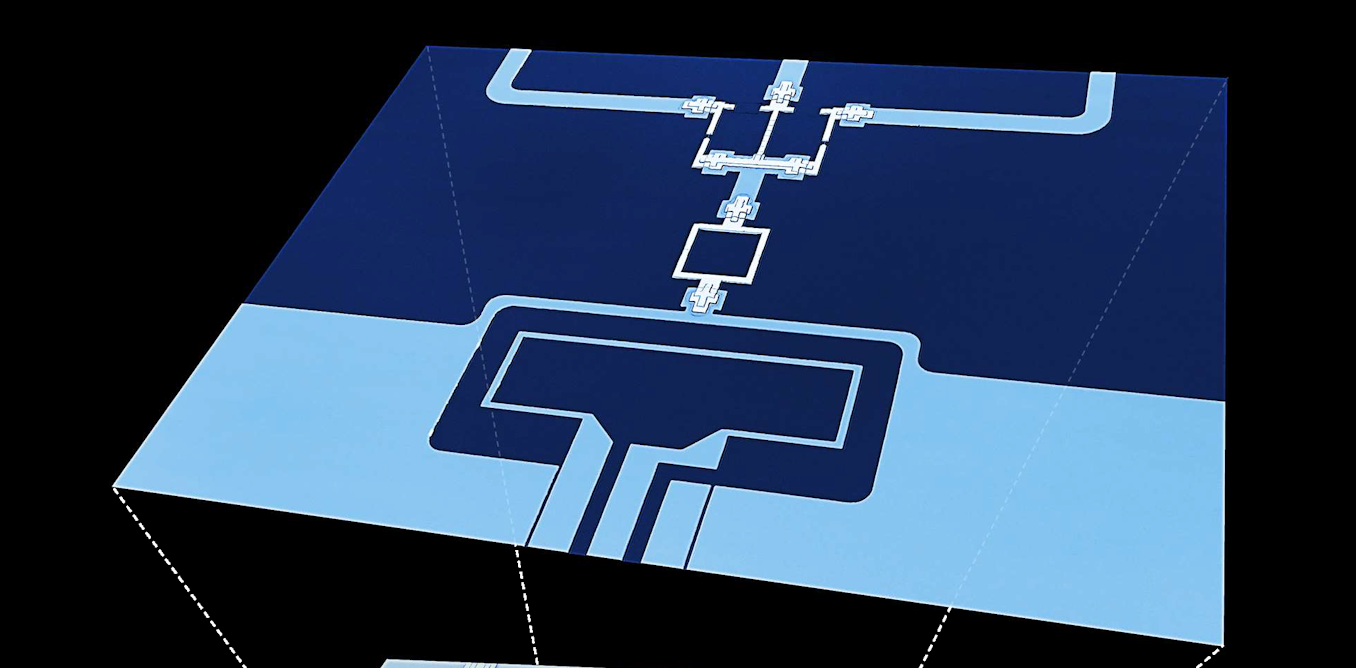Science
Nobel Prize in Physics Honors Pioneers of Quantum Technology

The 2025 Nobel Prize in Physics has been awarded to three scientists for their groundbreaking research on superconducting circuits, a key advancement in the field of quantum technology. This recognition highlights the significance of their work in demonstrating that even large electrical circuits can exhibit quantum behavior, paving the way for practical applications in quantum computing and beyond.
Transforming Quantum Research
In the early 1980s, John Martinis, then a Ph.D. student, along with postdoctoral researcher Michel Devoret and John Clarke, a professor at the University of California, Berkeley, conducted pivotal experiments using circuits made from niobium and lead. These materials, when cooled to just above absolute zero, become superconductors, allowing them to carry electrical current without generating heat. Their findings established that superconducting circuits could be described with quantum mechanics, displaying quantized energy levels and the ability to exist in superpositions of multiple states.
This foundational work was essential in showing that superconducting circuits could function similarly to single quantum particles, contributing to their utility in various applications. Today, these circuits are employed in the study of fundamental quantum physics, simulations of other physical systems, and testing protocols for ultraprecise sensing technologies.
Applications in Quantum Computing
The application of superconducting circuits to quantum computing represents one of the most significant advances in this field. Quantum computers leverage the principles of quantization, superposition, and entanglement, allowing multiple quantum systems to interact and behave as a single unit. In this context, a quantum bit, or qubit, can exist in only two states but must remain coherent, controllable, and scalable for practical use.
Superconducting qubits stand out for their combination of size, simplicity, and reliable quantum behavior. Researchers can design superconducting circuits to achieve desired qubit behaviors, making them an attractive option for quantum computing. While various technologies show promise, superconducting circuits strike a balance that enhances coherence and controllability without sacrificing scalability.
The ongoing research in this area continues to evolve, with academic institutions and industry leaders collaborating to develop new types of superconducting qubits and improve their performance. Notably, advancements in quantum sensors have allowed for precise measurements of physical quantities, including biological activity and gravitational anomalies.
The Nobel laureates’ impact extends beyond their initial research. Martinis has played a significant role in the Google quantum processor initiative, while Devoret continues to contribute to this effort. Clarke, who is now retired, has also influenced many careers in the field, with a notable academic lineage among his former students.
The recognition of their contributions through the Nobel Prize not only honors their past achievements but also sets the stage for future developments in quantum technology. As the field continues to grow, the work of these pioneers will serve as a foundation for the next generation of researchers striving to harness the full potential of quantum computing.
-

 World1 week ago
World1 week agoPrivate Funeral Held for Dean Field and His Three Children
-

 Top Stories2 weeks ago
Top Stories2 weeks agoFuneral Planned for Field Siblings After Tragic House Fire
-

 Sports3 months ago
Sports3 months agoNetball New Zealand Stands Down Dame Noeline Taurua for Series
-

 Entertainment3 months ago
Entertainment3 months agoTributes Pour In for Lachlan Rofe, Reality Star, Dead at 47
-

 Entertainment2 months ago
Entertainment2 months agoNew ‘Maverick’ Chaser Joins Beat the Chasers Season Finale
-

 Sports3 months ago
Sports3 months agoSilver Ferns Legend Laura Langman Criticizes Team’s Attitude
-

 Sports1 month ago
Sports1 month agoEli Katoa Rushed to Hospital After Sideline Incident During Match
-

 World2 weeks ago
World2 weeks agoInvestigation Underway in Tragic Sanson House Fire Involving Family
-

 Politics2 months ago
Politics2 months agoNetball NZ Calls for Respect Amid Dame Taurua’s Standoff
-

 Top Stories2 weeks ago
Top Stories2 weeks agoShock and Grief Follow Tragic Family Deaths in New Zealand
-

 Entertainment3 months ago
Entertainment3 months agoKhloe Kardashian Embraces Innovative Stem Cell Therapy in Mexico
-

 World4 months ago
World4 months agoPolice Arrest Multiple Individuals During Funeral for Zain Taikato-Fox





















